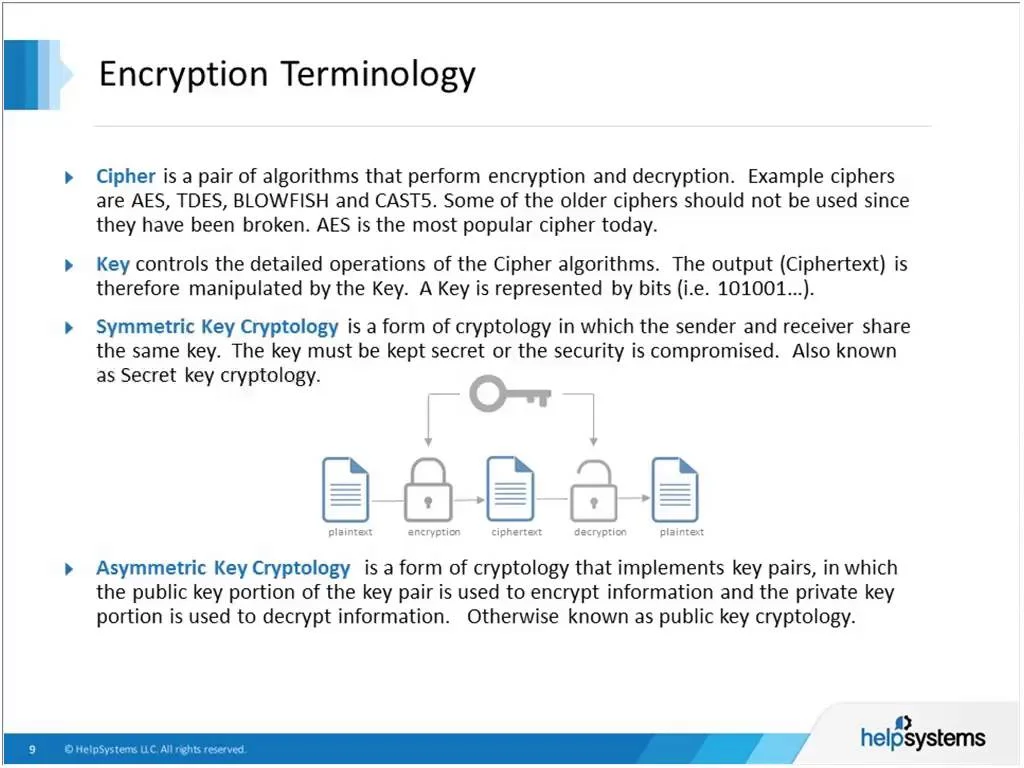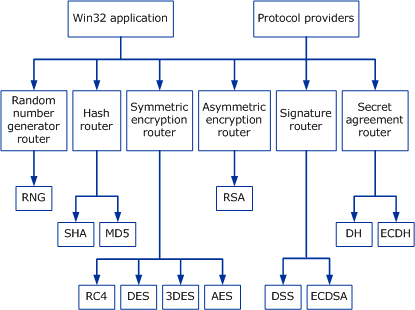System.security.cryptography.aes Generate Random Key
The Crypto.getRandomValues() method lets you get cryptographically strong random values. The array given as the parameter is filled with random numbers (random in its cryptographic meaning).
To guarantee enough performance, implementations are not using a truly random number generator, but they are using a pseudo-random number generator seeded with a value with enough entropy. The PRNG used differs from one implementation to the other but is suitable for cryptographic usages. Implementations are also required to use a seed with enough entropy, like a system-level entropy source.
- Static IV and random keys using aes-256-cbc. Ask Question. Are there any security risks in using a static IV if I generate a new random KEY for each set of data to encrypt? If I understand correctly what the purpose of the IV is in Cipher-block chaining mode of operation, there is no issue in doing things like this. Am I missing something?
- Mar 12, 2020 Generating AES keys and password. Use the OpenSSL command-line tool, which is included with InfoSphere® MDM, to generate AES 128-, 192-, or 256-bit keys. The madpwd3 utility is used to create the password. Before you begin. Verify that these environment variables are set.
- Jul 25, 2008 ' The auto-generated random key can be used ' by uncommenting these lines, and the corresponding ' lines in the Decrypt method below ' key = mAes.Key ' iv = mAes.IV ' Create the Encryptor using the Key and Vector (IV) Dim encryptor As ICryptoTransform = mAes.CreateEncryptor(GetKey, GetIV) ' Open both the input file for reading, and ' the.
getRandomValues() is the only member of the Crypto interface which can be used from an insecure context.
Is the below method a safe way of generating a random encryption key to be used with AES (SymmetricAlgorithm) in.NET? It essentially piggybacks off of the Aes alg to create a random key, trimmed. AES String Encryption (CBC) Example Code for C#. GitHub Gist: instantly share code, notes, and snippets.
Generating Keys for Encryption and Decryption.; 3 minutes to read +7; In this article. Creating and managing keys is an important part of the cryptographic process. Symmetric algorithms require the creation of a key and an initialization vector (IV). The key must be kept secret from anyone who should not decrypt your data. I want to generate an encryption key for the user to encrypt their data locally before sending to the server. The server should not have any knowledge, nor be able to compute, this encryption key. This encryption key should be deterministic, so that regardless of which device they're on, the same key is.
Syntax
Parameters
typedArray- An integer-based
TypedArray, that is anInt8Array, aUint8Array, anInt16Array, aUint16Array, anInt32Array, or aUint32Array. All elements in the array are overwritten with random numbers.
Return value

The same array passed as typedArray but with its contents replaced with the newly generated random numbers. Note that typedArray is modified in-place, and no copy is made.
Exceptions
This method can throw an exception under error conditions.
QuotaExceededError- The requested length exceeds 65,536 bytes.
Usage notes
Don't use getRandomValues() License key.  to generate encryption keys. Instead, use the generateKey() method. Farmville 2 country escape online key generator. There are a few reasons for this; for example, getRandomValues() is not guaranteed to be running in a secure context.
There is no minimum degree of entropy mandated by the Web Cryptography specification. User agents are instead urged to provide the best entropy they can when generating random numbers, using a well-defined, efficient pseudorandom number generator built into the user agent itself, but seeded with values taken from an external source of pseudorandom numbers, such as a platform-specific random number function, the Unix /dev/urandom device, or other source of random or pseudorandom data.
Examples
Specification
| Specification | Status | Comment |
|---|---|---|
| Web Cryptography API | Recommendation | Initial definition |
Browser compatibility
System.security.cryptography.aes Generate Random Key Free
| Desktop | Mobile | |||||||||||
|---|---|---|---|---|---|---|---|---|---|---|---|---|
| Chrome | Edge | Firefox | Internet Explorer | Opera | Safari | Android webview | Chrome for Android | Firefox for Android | Opera for Android | Safari on iOS | Samsung Internet | |
getRandomValues | ChromeFull support 11 | EdgeFull support 12 | FirefoxFull support 26 | IEFull support 11 | OperaFull support 15 | SafariFull support 6.1 | WebView AndroidFull support ≤37 | Chrome AndroidFull support 18 | Firefox AndroidFull support 26 | Opera AndroidFull support 14 | Safari iOSFull support 6.1 | Samsung Internet AndroidFull support 1.0 |
Legend
- Full support Â
- Full support
See also
Steam

Window.cryptoto get aCryptoobject.Math.random, a non-cryptographic source of random numbers.